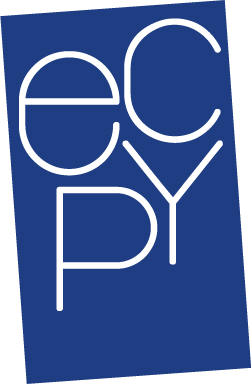Porto Mirabello – La Spezia, Italie
















Porto Mirabello - La Spezia - Liguria - Italian Riviera - Berths and Moorings Still Available for Sale - Stopovers, Winterizing, Seasonal, Passage and Long-term Rental and Lease - Leaseholds expire in 2067
| Localisation: | Italy, La Spezia |
|---|---|
| Réf. Broker No: | PORTO MIRABELLO - RIVIERA ITALIENNE - LIGURIE |
| Télécharger fiches PDF ci-dessous pour plus de détails du Porto Mirabello – La Spezia, Italie | |
|---|---|
| Brochure PDF | Télécharger |
| Additionnelle PDF | Télécharger |
Berth Description
Porto Mirabello – La Spezia – Ligurie – Riviera Italienne – Places de Port et Anneaux d’Amarrage Encore Disponibles à Vendre – Pour Location en Escale, Hivernage, Saisonnière, de Passage, à Long Terme et Bail – Amodiations expirent en 2067
PORTO MIRABELLO, relié à La Spezia par un pont pédestre, a ouvert en 2010 et la marina est un port urbain italien vraiment unique construit sur une péninsule artificielle avec 1.107 places sur une superficie de 230.000 m2, mettant en valeur dans son complexe toutes les commodités modernes d’une marina pour Super-yachts.
407 places peuvent être vendues sous baux avec une concession de domaine public maritime de 60 ans et peuvent accueillir des bateaux à partir de 12 mètres. 100 places sont conçues spécifiquement pour des Super-yachts de 25 à 130 m. En synergie avec l’Administration Portuaire de La Spezia, 700 places supplémentaires ont été créées pour des petits bateaux de moins de 14 mètres, sur 13 pontons flottants situés à l’extérieur de la jetée principale. Les jetées mesurent jusqu’à 35 mètres de large avec 1300 places de parking et 287 places de stationnement également juste en face des amarres.
La position stratégique de la mer Tyrrhénienne du Nord fait de PORTO MIRABELLO l’endroit idéal pour partir à la découverte de certaines des destinations de plaisance d’élite dans la Méditerranée telles que Monte-Carlo, Corse, Île d’Elbe, Capri, Côte Amalfitaine ou Porto Cervo en Sardaigne. PORTO MIRABELLO est un havre abrité dans le golfe de La Spezia, protégé par les îles Tino et Palmaria et un brise-lames de 620 m, permettant une navigation tranquille environ 300 jours par an, des sites proches d’une incroyable valeur historique offrant des vues à couper le souffle comme Lerici , Porto Venere, Cinque Terre et Portofino.
PORTO MIRABELLO offre un environnement de luxe conçu pour offrir aux clients un maximum de confort dans toute la marina.
POINTS CLÉS
• Dans le golfe de La Spezia, avec un accès facile aux destinations italiennes d’Élite
• Héliport et service de navette pour les transferts plus longs
• À proximité des principaux chantiers navals italiens
• Chantier naval Mirabello et cale sèche, travelifts de 160 T et 700 T
• 2 stations de carburant à haut débit
• Centre commercial avec commerces, restaurants, bars et banque
• Piscine
• Sécurité 24h / 24
• Conciergerie pour propriétaires et équipage
• Personnel technique Service 24h/Jour disponible pour répondre à tous les problèmes des plaisanciers
CARACTÉRISTIQUES PRINCIPALES
Latitude : 44° 05′ 803 N
Longitude : 09° 49′ 989 E
Places de port: 1107
700 places pour bateaux <14m
407 Anneaux d’Amarrage disponibles sur bail
100 Places pour Yachts et Super-yachts de 25 à 130 m
Profondeur : 8 m à 10 m
Alimentation : 220V – 380V / 16 A à 400 A
Eau douce : Disponible sur tous les postes d’amarrage dans le port de plaisance
SERVICES ET INFORMATIONS UTILES
VHF : Canal 73
Bureau du port, réception ouverte tous les jours de 9h00 à 19h00
Sécurité 24h/24 avec 90 caméras vidéo de dernière génération et surveillance interne et externe
1300 places de stationnement et 287 garages également devant les amarres – chaque anneau a au moins une place de parking
Service météorologique
Chantier naval et d’entretien, travelift pour le transport et le lancement des yachts jusqu’à 160 tonnes
Deux stations de ravitaillement : La première station, située près de l’entrée de la jetée principale, offre seulement diesel et sans plomb. L’autre, située à l’extrémité de la jetée principale, offre diesel et le diesel de haut-débit (SIF) pour Méga-yachts. Les deux stations peuvent distribuer 500 litres par minute, 30.000 litres par heure
Wifi, location de scooters, vélos, voitures de luxe, navettes et voitures électriques de courtoisie
Un espace a été réservée à l’usage exclusif d’hélicoptères, situé près de l’avant de la jetée principale, à proximité de la zone réservée aux Méga-yachts
Centre commercial : 30 boutiques et commerces, dont 10 bars à vin, bistrots, restaurants et guichets automatiques
Fournisseur médical Pharmacie Ghigliazza
Gym, café et piscine près de la mer
Concierge à votre disposition
Visites guidées et excursions aux paysages fascinants de Potovenere, Cinque Terre, Lerici, Golfo dei Poeti, Lunigiana, Val di Vara, Val di Magra, Portofino, pour découvrir les villages médiévaux et les châteaux
Restauration Cuisine italienne sur la terrasse d’Akua, ou au pub anglais « Royal Mirabello », à quelques mètres de votre yacht
Épicerie fine
Porto Mirabello est stratégiquement situé; Les clients peuvent rapidement rejoindre de nombreux sites italiens renommés par hélicoptère : Milan, Florence ou Pise, Turin, Parme.
COMMENTAIRES
En ce moment, nous pouvons proposer à PORTO MIRABELLO des remises considérables aux propriétaires de Super-yachts qui réservent pour la première fois un contrat d’amarrage annuel. Même si le port a atteint ses objectifs avec une occupation de places de 80%, le but de cette campagne est de diffuser la signification et la valeur d’un « port d’attache ».
PORTO MIRABELLO est une marina idéale pour yachts et Super-yachts avec des tarifs extrêmement compétitifs. Pour une liste complète des prix de location et d’achat, veuillez nous contacter.
Depuis 2015, Allied Yachting a développé un partenariat avec PORTO MIRABELLO et son chantier naval pour y amarrer certains de nos yachts en gestion, ainsi que pour le gardiennage, l’hivernage, l’entretien et le service des bateaux, avec des tarifs préférentiels.
Porto Mirabello – La Spezia, Italie Berth Video
Berth Emplacement
Envoyer demande
Merci de nous transmettre votre demande et nous allons vous répondre bientôt.
Тел: +336 75 96 41 41
E-mail: jlacombe@alliedyachting.com






